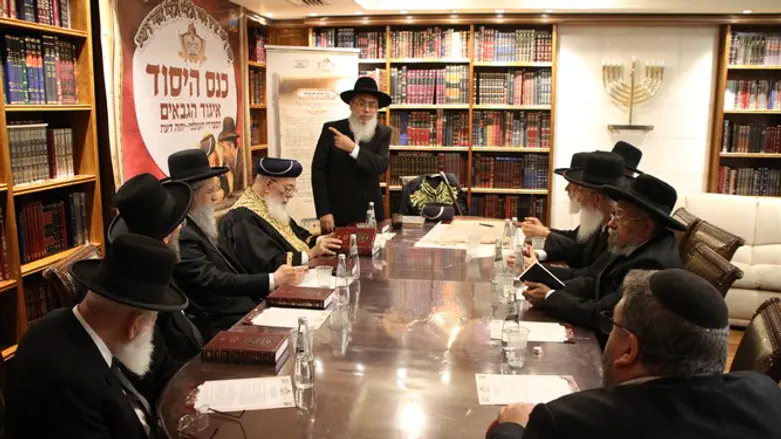
The World Association of Sephardic Sextons, Yechave Daas, was inaugurated this week in Jerusalem at a conference of Sephardic rabbis. The purpose of the association is to strengthen Sephardic Jewry through the sextons of Sephardic synagogues throughout Israel.
The association was established under the chairmanship of council member of Shas Torah sages, Rabbi David Yosef, who signed the founding scroll of the association.
The sextons will receive a budget for the expansion of Torah lessons for men and women, the access of Rabbi Ovadia Yosef's rulings, the use of and advice of the "Kav Horaah" 24-hour hotline, and preparation for Bar Mitzvahs. The association will also provide discounts for purchasing items for synagogues, professional guidance, assistance with government offices and other complex issues.
Rabbi Tzuriel Krispel, a graduate of Yechave Daas and the spirit behind the initiative, opened the rabbis' conference with an explanation of the importance of the association and the tools it will provide to sextons.
"There are more than 21,000 synagogues in Israel, of which 70% are Sephardic, and most of them are followers of Rabbi Ovadia Yosef," he explained. "We are striving to connect them to the wonderful legacy of Rabbi Ovadia, to assist them, to guide them, to connect them to the hundreds of Yechave Daas rabbis who will provide Torah lectures and provide rulings in Jewish law for them. We will also provide extensive financial assistance."
President of the association Rabbi David Yosef then arose to speak: "We are commanded to do everything for the merit of the public. The purpose of this association of synagogues in Israel and around the world is a sacred goal: to establish Torah lessons, to answer questions in Jewish law and help each synagogue to become a Torah and spiritual center."
The rabbi of Jerusalem, Rabbi Shlomo Amar, then spoke and reminisced about Rabbi Ovadia Yosef. He spoke about how it pained Rabbi Yosef when he was prevented from giving a Torah lecture for the public merit and how much he cherished the importance of spreading Torah to the public, especially to those who only had a basic Torah education.